In May 2021 George Will was asked what he thought of plans for a bipartisan commission to investigate Donald Trump’s failed coup. “I would like to see January 6 burned into the American mind as firmly as 9/11,” Will said approvingly, “because it was that scale of shock to the system.”
Well.
The commission never happened. Just six Senate Republicans voted in favor of one, well shy of what was needed to beat a filibuster. House Democrats responded by forming a committee in their own chamber to take up the matter and invited Republicans to appoint some of its members, asking only that they not name anyone likely to try to subvert its work on Trump’s behalf. But Kevin McCarthy did exactly that, which created a pretext for his party to boycott the committee entirely after then-Speaker Nancy Pelosi rejected two of his appointees.
The panel ended up functionally, if not technically, partisan.
From the beginning, in other words, the Republican Party’s damage-control strategy for January 6 was to shift it out of the category of unifying national traumas like 9/11 that are “burned into the American mind” and into the category of pedestrian left-right squabbling that can be safely ignored. The more partisan the efforts to expose Trump’s “Stop the Steal” scheme could be made to appear, their theory went, the more likely the average joe would be to tune them out as standard political noise. The GOP resolved to turn the insurrection and what preceded it into a litmus test in which evincing outrage over what Trump did amounted to a partisan heresy so grave as to warrant formal censure.
And they did a pretty good job of it, no?
This afternoon, on the fourth anniversary of the attack on the Capitol, the man responsible for it was certified as the winner of the 2024 presidential election by many of the same members who had fled the House and Senate in fear for their lives from the mob he had whipped up. Trump not only won the national popular vote this year, he’s now viewed more favorably by the American public than he was at any point during his presidency. It doesn’t follow from that data that his coup attempt made him more popular—but it does follow that it hasn’t made him less so.
History is written by the victors, it’s said. Trump and his movement are the victors in the raging political conflict they provoked four years ago. How will the history of January 6 be written?
Retconning.
There’s an unnerving undertone to the pieces published today commemorating the attack, one of which appears at the Washington Post under the byline of the president of the United States.
Normally remembrances of national traumas like Pearl Harbor, September 11, the Kennedy assassination, or the Challenger explosion take a “where were you when?” approach that illustrates Will’s point about the collective consciousness. Some disasters are so shocking and universally grieved that every American can recall their location as they absorbed them.
“Where were you when?” is not the vibe of today’s January 6 commemorations. The vibe is “no, really, this happened,” strange for something that occurred just four years ago, played out on live television, and has been covered more extensively by the press than any other political development this decade, surely.
But it’s understandable. Knowing that history is written by the victors, the vanquished are worried that America’s collective memory of the first coup attempt in U.S. history will prove as impressionable as the right’s has been and are eager to restate the facts for posterity.
Joe Biden’s column is explicit about it. “In time, there will be Americans who didn’t witness the January 6 riot firsthand but will learn about it from footage and testimony of that day, from what is written in history books and from the truth we pass on to our children,” he wrote. “We cannot allow the truth to be lost.” On Sunday the New York Times published a long analysis of the methods Trump and his devotees have used to distort what happened before and during the insurrection—blame-shifting, conspiracy theories, martyrdom narratives, strict gatekeeping of adverse information, fanaticism about loyalty, the whole authoritarian menu from soup to nuts. “We cannot allow the truth to be lost” might as well have been the title of the Times piece.
Hasn’t it already been lost, though?
The frightening thing about the right’s reaction to January 6 isn’t that they overlooked it to justify voting for Trump again, Matthew Yglesias pointed out on Monday. “Lesser of two evils” rationales are common on Election Day, after all. What’s frightening is “the extent to which the entire conservative movement has retconned not just the events of four years ago, but their own reactions to those events, such that these days, to be disturbed by them is considered some form of lib hysteria.”
It’s true. The GOP effort to turn Trump’s coup attempt into a partisan litmus test worked so well that even conservatives who erupted in anger during the insurrection have taken to rolling their eyes at Democratic hand-wringing about it today. On January 6, 2021, radio host Erick Erickson called for shooting the rioters; on Sunday he mocked the liberals at NPR for looking forward to writing about the attack the way a child looks forward to Christmas.
The right’s comprehensive revisionism about the “Stop the Steal” period in 2020 and 2021 is mortifying because it’s proof of concept about what modern populist propagandists can achieve. They convinced enough Americans not to care about an honest-to-goodness coup attempt to get Trump reelected, and if they can do that, they can do anything. The lesson will not be lost on them over the next four years.
Trump’s weird insistence on relitigating January 6 seems less weird in that context. A man running for a second presidential term rationally should want to say as little as possible about the most disgraceful episode of his career. But he understood that the more political capital he invested in retconning the insurrection, the more obliged his supporters would feel to invest in it too. It may seem absurd that his nominee to lead the FBI has repeatedly accused the agency of planning January 6 or that Trump will soon take the momentarily unpopular step of pardoning participants in the riot or that he remains preoccupied with a matter as niche as prosecuting Liz Cheney, but it’s all part of the normalization process.
The more he embraces what happened, the weaker the public taboo around it gets. With enough effort any truth can be overcome.
Rationalizing.
The truth has also been lost to Trump supporters who lie beyond the hard core of right-wing partisans, although not in the same way.
It’s not “lost” in the sense that they’re in denial about what happened, as loyal Republicans are. Many soft supporters did vote for him on “lesser of two evils” grounds, no doubt, clear-eyed about what happened at the Capitol four years ago and who was to blame, yet persuaded that Trump was still somehow the lesser evil on the ballot in 2024.
The truth will be “lost” to them in the sense that none of them want to talk about January 6 ever again.
“Every domestic interest group, every faction in Congress, every foreign government will need to do business with him,” David Frum said of Trump on Monday. “And because most of us need to believe in what we are doing, almost every institution in American society and the great majority of its wealthiest and most influential citizens will find some way to make peace with Trump’s actions on January 6, 2021.”
That’s right, and the flagrant way in which Trump practices patronage politics will accelerate the process. “For my friends everything, for my enemies the law,” the saying goes: Needing something from the federal government during a Trump presidency will mean earning his friendship, and the first step in that is not reminding your friend of the time he proved conclusively that he’s a lowlife banana-republic wannabe caudillo. That’s another reason for Trump to pardon the rioters and install Kash Patel at the FBI and hound Cheney, in fact—it serves notice to his courtiers that all of this still matters a lot to him and so they had better not cross him on it.
Even Democrats don’t want to engage anymore over January 6. As Frum noted elsewhere, one takeaway from November’s result is that defending democracy is a losing electoral message. Not enough Americans care about it, at least relative to kitchen-table concerns like the price of groceries. If anything, gassy liberal chatter about civic virtues might have convinced working-class voters that Kamala Harris couldn’t relate to their day-to-day struggles. The left won’t make that mistake again going forward; punishing candidates for trying to overturn national elections is now officially a low priority for both parties.
All told, we’re headed for a conspiracy of silence around January 6 among the most influential elements in society. And as Frum says, that silence will inevitably begin to infect the thoughts of his opportunistic allies the same way that having to bite their tongues about Trump after 2016 turned traditional “conservatives” like Mike Lee and Marco Rubio into reliable MAGA apologists. The shame of kowtowing to him for selfish reasons will grow increasingly unbearable until the only way to bear it is to purge it by embracing it. January 6 wasn’t that bad, come to think of it.
It isn’t just society’s influencers who are prone to this, though.
Rank-and-file “soft” Trump supporters are surely vulnerable to it. If you’re the kind of person who voted for him reluctantly, disgusted by January 6 but a little more disgusted by inflation, he’s apt to foist one or more new civic crises on you in his second term. What’s the less embarrassing reaction when he does—to proclaim yourself a fool who somehow didn’t learn from a coup attempt that he shouldn’t have been trusted again with power, or to conclude in retrospect that January 6 wasn’t that bad, come to think of it, and so this new crisis probably isn’t as bad as it seems either?
To borrow Kevin Williamson’s analogy, if you invite a vampire into your home and he bites your neck, you can either agonize over your stupidity or conclude that becoming a vampire surely must have its charms.
My guess is that, by the end of his next term, there’ll be very few Trump 2024 voters who still support him and remain in touch with the reality of what he did to try to overturn the 2020 election. The cognitive dissonance required to earnestly admire a coup-plotter is too hard for someone raised in a country with America’s civic traditions to resolve; it’s easy to say “I like the policies but not the mean tweets” in perpetuity, but it’s harder to say “I like the policies but not the coup plots.” The reluctant “lesser of two evils” Trump voters will either turn on him or become true believers, especially once he forces them to choose by taking a sledgehammer to some other civic traditions. In the end, either one’s support for him or the truth about his coup attempt must yield.
History.
So maybe that’s the answer to the question of how the history of January 6 will be written. It depends on which yields to which, and that depends on how successful his second term is.
If it’s a success, with a strong economy and no major foreign catastrophes, soft supporters will decide that the “Stop the Steal” effort of 2020 was a no-harm-no-foul aberration. The first coup attempt in the history of the country will be treated as a “mean tweet” that got a bit out of hand, just one of those things that “respectable” Americans dislike about him but not so much as to deprive him of the nuclear codes. The political history of the Trump era will be written as a matter of having to take the bitter with the sweet, with the implication that the sweet more than compensated for the bitterness of the insurrection.
Who knows? If he does really well, history books might end up “teaching the controversy” about January 6 the way some states do with evolution. Some say that the Capitol was attacked by a raging mob of proto-fascists brainwashed by a mentally ill sore loser; others say the election was rigged and patriots intervened to try to rescue democracy. The truth is unknowable. Decide for yourself.
If Trump’s term isn’t successful—inflation ticks up again, China and Russia expand their borders, bird flu erupts and his science team decides that a vaccine would do more harm than good—soft supporters might turn against him, making outrage over January 6 retroactively respectable again. “Victory has a thousand fathers but defeat is an orphan”: Some Trump voters who end up feeling defeated by his policy failures won’t continue giving him grace for his failed coup, especially if (read: when) he attempts a new power grab as president. You can’t take the bitter with the sweet when there’s no sweet to take.
But here’s a more dystopian possibility: The history of January 6 will never be “written” no matter how successful or not Trump’s term is, neither by the “victors” nor by anyone else. The age of settled historical consensus involving contentious political disputes is well and truly over.
That was the lesson of this last election, no? Democrats were the nominal victors when Trump’s 2020 coup plot failed yet he and his apologists wrote enough of the resulting “history” about it to make a plurality of Americans comfortable with making him president again. “The internet may function not so much as a brainwashing engine but as a justification machine,” journalist Charlie Warzel and researcher Mike Caulfield wrote on Monday about how Americans consume information now. ”A rationale is always just a scroll or a click away, and the incentives of the modern attention economy—people are rewarded with engagement and greater influence the more their audience responds to what they’re saying—means that there will always be a rush to provide one.”
Many histories of January 6 have been and will be written. Many histories of Trump’s next constitutional crisis (and the one after that, and the one after that …) will be written too, and they’ll be consumed not on the basis of how credible the source is but by how flattering the account is to the reader’s political sympathies. After the 2020 election Trump showed that he processes reality not in terms of what’s true and what’s false but in terms of what is and isn’t pleasing for him to believe. The political culture of the right, and increasingly of the entire country, now operates the same way. He really is the victor.
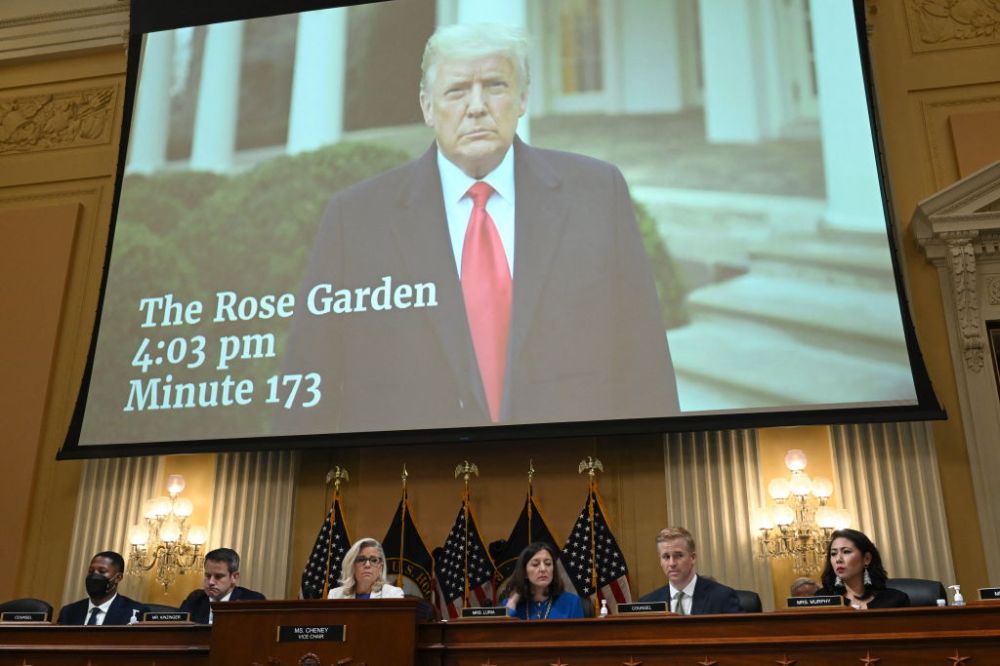

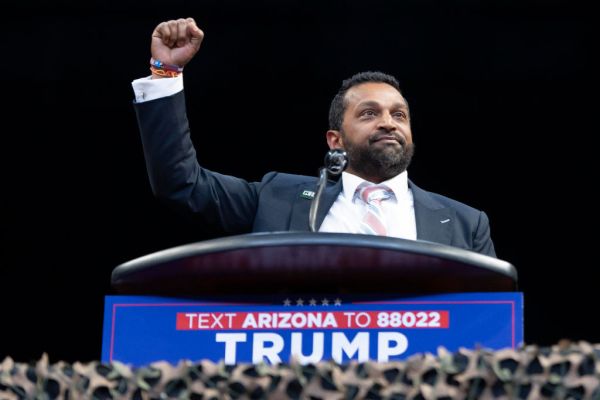
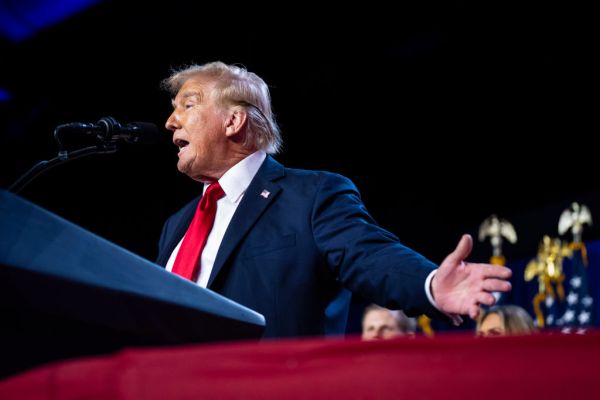
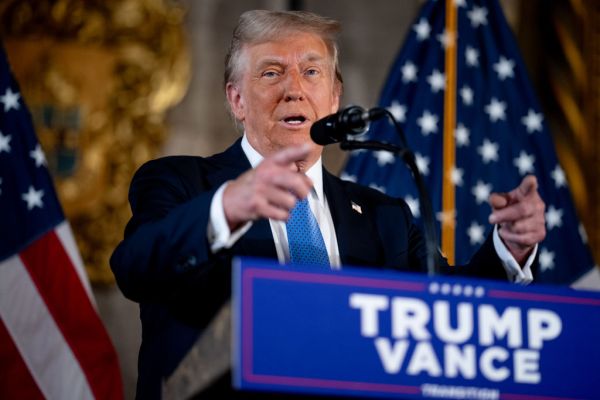

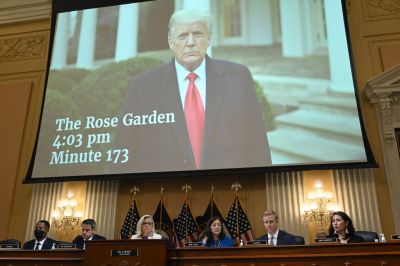
Please note that we at The Dispatch hold ourselves, our work, and our commenters to a higher standard than other places on the internet. We welcome comments that foster genuine debate or discussion—including comments critical of us or our work—but responses that include ad hominem attacks on fellow Dispatch members or are intended to stoke fear and anger may be moderated.
With your membership, you only have the ability to comment on The Morning Dispatch articles. Consider upgrading to join the conversation everywhere.